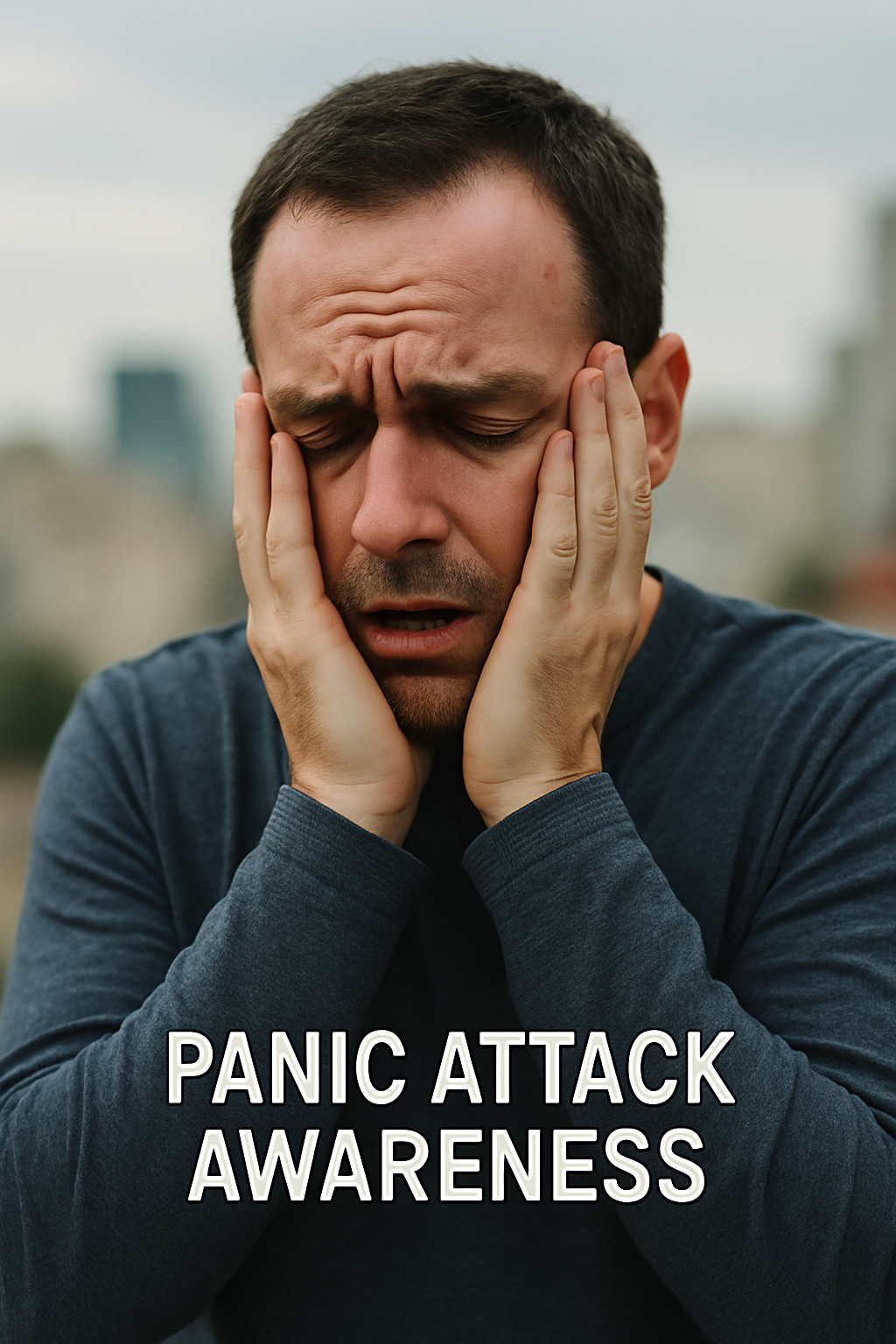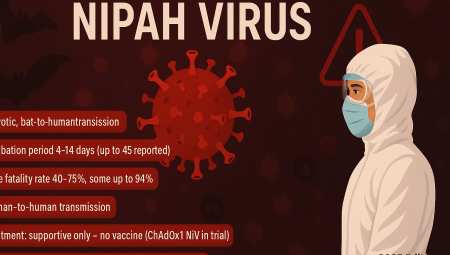A panic attack is more than just anxiety—it’s a sudden surge of intense fear that can feel paralyzing. In our fast-paced, hyperconnected world, more people than ever are experiencing this overwhelming mental health event. Whether triggered by stress, trauma, or seemingly nothing at all, panic attacks demand attention and understanding. This guide aims to provide a complete overview of panic attacks, from symptoms and causes to treatment options and professional tips—empowering you to recognize, manage, and even prevent them effectively.
What Is a Panic Attack?
A panic attack is a sudden episode of intense fear that triggers severe physical reactions when there is no real danger or apparent cause. According to the DSM-5, panic attacks peak within 10 minutes and include symptoms like palpitations, sweating, shortness of breath, and fear of losing control or dying.
Panic Attack vs Anxiety Attack
Though the terms are often used interchangeably, they are not the same. Anxiety attacks build gradually in response to stress, whereas panic attacks are sudden and intense. Panic attacks often occur without warning, even during sleep.
Common Symptoms
Panic attacks can mimic symptoms of heart attacks or other serious health issues, which is why many first-time sufferers end up in emergency rooms.
Physical Symptoms
- Chest pain or discomfort
- Rapid heart rate (palpitations)
- Shortness of breath or hyperventilation
- Dizziness or lightheadedness
- Sweating, chills, or hot flashes
- Nausea or abdominal distress
- Trembling or shaking
Emotional & Cognitive Symptoms
- Fear of losing control or “going crazy”
- Fear of dying
- Sense of detachment (derealization or depersonalization)
- Intense worry about future attacks
Causes & Risk Factors
Panic attacks can stem from a wide variety of internal and external factors. Sometimes, no specific cause is identifiable.
Common Triggers
- Major life transitions (e.g., starting a new job, divorce)
- Chronic stress or trauma
- Genetics and family history of anxiety disorders
- Brain chemistry imbalances
- Substance use (caffeine, nicotine, alcohol, or drugs)
Psychological Risk Factors
- Anxiety sensitivity (fear of anxiety-related sensations)
- Avoidant behavior and catastrophic thinking patterns
- Coexisting disorders like depression or PTSD
Real-Life Scenario
Imagine someone preparing for a big presentation. The room is quiet, all eyes on them—and suddenly their heart races, breathing shortens, and they feel detached from their surroundings. There’s no immediate danger, yet the body and mind react as if survival is threatened. This illustrates how panic can strike unexpectedly, even in seemingly ordinary settings.
When Panic Attacks Become a Disorder
Experiencing a panic attack doesn’t mean you have a panic disorder. However, when panic attacks are recurrent and unpredictable, they may indicate Panic Disorder, a diagnosable mental health condition.
Symptoms of Panic Disorder
- Frequent, unexpected panic attacks
- Persistent concern about having another attack
- Behavioral changes to avoid potential triggers
- Development of agoraphobia—fear of places where escape might be difficult
How to Help Someone Having a Panic Attack
If someone near you is experiencing a panic attack, your calm presence can make a big difference:
- Stay calm and speak in a soothing voice
- Reassure them that they are safe and the attack will pass
- Encourage slow, steady breathing
- Guide them through a grounding exercise (e.g., 5-4-3-2-1 method)
Avoid minimizing their experience with phrases like “just calm down”—this often does more harm than good.
Treatment & Coping Strategies
While panic attacks are frightening, they are treatable. A combination of therapy, medication, and lifestyle changes can significantly improve quality of life.
In-the-Moment Techniques
- Deep Breathing: Inhale slowly through your nose for 4 seconds, hold for 4, exhale through your mouth for 4.
- Grounding Techniques: Use the 5-4-3-2-1 method (identify five things you can see, four you can touch, etc.) to reorient.
- Cold Water Splash: Activates the parasympathetic nervous system and helps calm the body.
Long-Term Therapies
- Cognitive Behavioral Therapy (CBT): Helps change thought patterns and reactions.
- Exposure Therapy: Gradually exposes individuals to panic triggers in controlled settings.
- Medications: SSRIs (e.g., sertraline, fluoxetine), SNRIs, or benzodiazepines (short-term)
Lifestyle Adjustments
- Regular physical exercise
- Limiting caffeine and alcohol intake
- Adequate sleep and hydration
- Mindfulness meditation or yoga practices
Additional Self-Care Tips
- Nutrition: Maintaining a balanced diet can help regulate blood sugar and mood.
- Social Support: Engaging with trusted friends or support groups reduces isolation.
- Digital Detox: Reducing screen time—especially social media—can lower anxiety triggers.
Expert Pro Tips
- Practice Daily Breathing Exercises: Just 5 minutes a day can build resilience.
- Track Your Triggers: Maintain a journal of episodes to recognize patterns.
- Prepare a Panic Kit: Include items like peppermint oil, calming music, or a grounding object.
- Tell a Trusted Friend: Having someone aware of your condition helps during public episodes.
- Use Mobile Apps: Apps like Calm, Headspace, or Rootd can offer instant tools.
- Learn Body Signals: Identifying early physical signs can help you intervene sooner.
- Attend Webinars or Workshops: Stay educated about anxiety management techniques.
- Consult a Nutritionist: Gut health and mental health are closely linked.
Frequently Asked Questions (FAQ)
How long does a panic attack last?
Most panic attacks last between 5 to 30 minutes, with the peak intensity usually around the 10-minute mark. However, the aftereffects—fatigue, anxiety, fear—may linger longer.
Can panic attacks be prevented?
While you may not stop them entirely, consistent therapy, stress management, and healthy routines can significantly reduce their frequency and severity.
Should I see a doctor after a panic attack?
Yes, especially if it’s your first time or if symptoms resemble a heart attack. A mental health professional can help diagnose and treat underlying conditions.
Is it possible to have a panic attack while sleeping?
Yes. These are called nocturnal panic attacks and can wake you from sleep with intense fear and physical symptoms.
Are panic attacks dangerous?
Though terrifying, panic attacks themselves are not life-threatening. However, they can severely affect quality of life and lead to avoidance behaviors if untreated.
Can breathing techniques really help?
Absolutely. Proper breathing slows down the nervous system, helping to regulate heart rate and reduce the sensation of panic. It also reinforces your sense of control.
Conclusion
Panic attacks are frightening, but they don’t have to control your life. With the right tools, strategies, and support, you can regain confidence and calm. Whether you’re managing them yourself or supporting a loved one, understanding is the first step toward healing.
Have you ever experienced a panic attack? What worked for you? Share your thoughts, questions, or experiences in the comments below. Let’s support each other.



